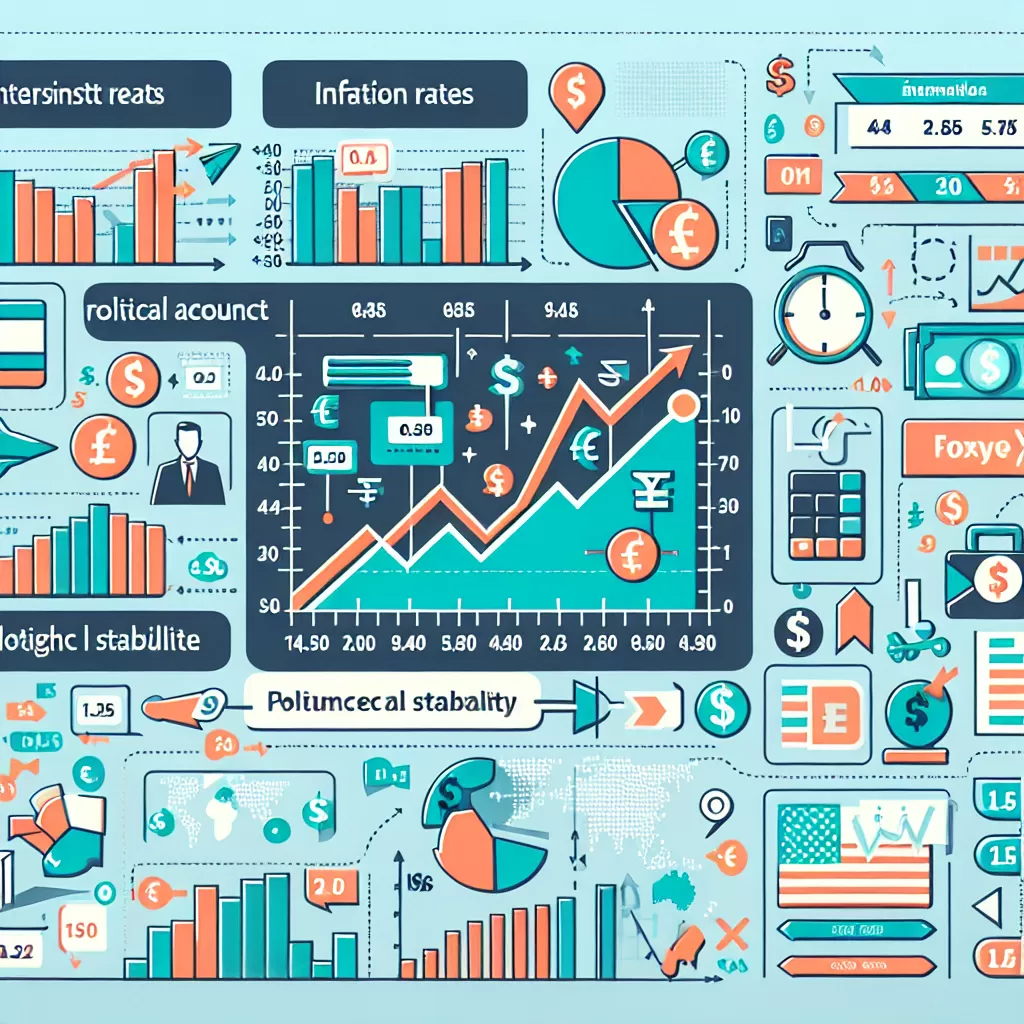What Factors Affect Currency Exchange Rates
Follow Currency Mart April 10, 2024
Where to purchase Foreign Currencies?

Factors Affecting Currency Exchange Rates: A Deep Dive
As the Guardian of currency exchange, I have the privilege to bring to you the world of currency fluctuations, the undercurrents that drive them, and the strategies to navigate through them. This article aims to provide an insightful peek into the factors that determine currency exchange rates and guide you in your financial journey.Inflation Rates
Did you know that inflation plays a significant part in currency exchange rates? When a country has a consistently low inflation rate, the value of its currency appreciates. This results in higher purchasing power compared to other currencies. Conversely, countries with higher inflation typically see their currency's value decrease. Therefore, inflation is inversely proportional to the strength of a currency and understanding this correlation becomes crucial in trading and investing.Interest Rates
Another key player in the world of currency exchange is interest rates. Central banks, such as the Bank of Canada or the U.S. Federal Reserve, set these rates, impacting the market value of a currency. When interest rates increase, it encourages foreign investors to invest in that country, thus appreciating its currency value. Therefore, an analysis of interest rate trends from trusted sources can play a crucial role in predicting currency strength or weakness.Political Stability
A prosperous nation is one that is stable, not merely economically, but politically as well. A country with a guaranteed political stability attracts more foreign capital, which leads to a stronger currency. In turn, countries rife with political turmoil often see their currency's value depreciate. We need to follow international political news to have a sense of where our investments might lead us.Economic Performance
Economic performance is a fundamental factor affecting currency exchange rates. A strong economy, marked by robust GDP growth, increased productivity, and high employment rates, often leads to appreciation in its currency's value. Paying attention to economic indicators such as GDP reports, employment figures, retail sales data, among others, can give traders a clear picture of a currency’s potential value.Speculation and Market Sentiment
Though influenced by economic fundamentals, currency exchange also dances to the tune of market sentiment. If traders believe that a currency's value will rise in the future, they may buy more of it, driving up its current value. Conversely, if traders anticipate a decrease, they may sell off their holdings, leading to a fall in currency value. Thus, speculation and market perception form an elusive, yet powerful force in the currency exchange realm.Balance of Trade
The balance of trade, or the relationship between a nation's imports and exports, also affects currency exchange rates. A positive balance of trade, or a trade surplus, leads to appreciation in a nation's currency. In contrast, a trade deficit suggests that the country is importing more than it exports, causing its currency to depreciate. Tracking trade statistics can help map the trajectory of a currency’s value.Public Debt
Nation's burdened with high public debt often have lower confidence in international investors which could lead to inflation. This debt-compelled inflation can lead to the decrease in currency value as investors will start selling off their bonds in the anticipation of heightened risks. The world of currency exchange is vast and more complex than most anticipate. It dances on the strings of multiple factors, all of which are interrelated. Understanding these factors, monitoring them, and extrapolating their impacts can help you make informed decisions about your currency exchange strategies. However, it’s crucial to remember that given the market’s volatile nature, there are no guaranteed outcomes, but a firm grasp of these factors can certainly give you an upper hand.
Where to purchase Foreign Currencies?